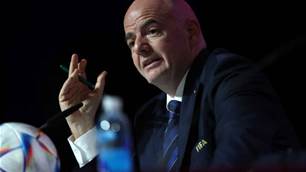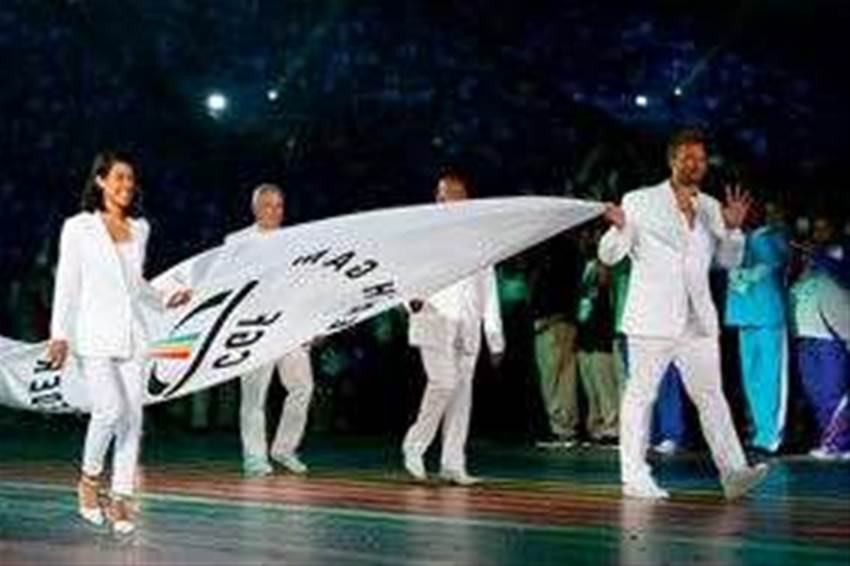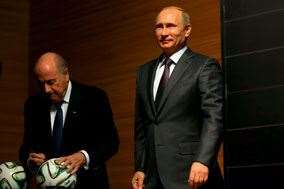A quick recap of the hits and misses from a crazy month of sport.
WINNER - IAN THORPE
The post-swimming personal troubles of Ian Thorpe were disconcerting because of how we remember the young superstar when he first emerged. Was there ever a sporting phenom so poised, who spoke so intelligently, who seemed to have it all together? The question about Thorpe was not whether he would have a great career in the pool – that seemed assured – but what grand second act he would craft afterward.
In coming out in his interview with Michael Parkinson, Thorpe confirmed a long-circulated whisper. But he also shed light on a very private anguish. Thrust, as he was, into icon-in-waiting status because of the Sydney Olympics, he felt he had to compromise with his own identity. Whether Australia was or wasn’t ready in 2000 for its hero to be a gay man, as he put it, the mere fact he had to weigh such matters is telling.
The culture is at a point where the momentum is undeniable: NFL and NBA players are out, and the poorly chosen words of ex-footballers are howled down as the groans of dinosaurs. Thorpe has been derided in some quarters for how he’s profited off this announcement, and there’s also the sense of “who cares anymore?” going around. But Thorpe stands as perhaps the biggest male sports star yet to come out, and sport still has tough questions to ask itself about the persistence of institutional homophobia. Even if the force of history is now moving in favour of greater tolerance toward sexual orientation, progress still depends on the hard yards made by individuals, both lesser-known and world-famous, ready to champion the cause.
LOSER - PLAYER SABBATICALS
It’s a good moment, and it hasn’t been this good for awhile, for Australian rugby. It is why this phenomenon of player sabbaticals is so troubling. We’ve seen players take late-career overseas turns to cash in or enjoy a broadening experience, but this latest case of Nick Cummins hurts on several levels – an in-prime player who also happens to be one of the great footy characters to emerge in many a moon. The Australian Rugby Union has decided to draw the sandy line on the issue, using its ultimate leverage – the chance to wear Wallaby gold. While the ARU probably doesn’t have many desirable options, this kind of hard line seems destined to end up in some kind of bad outcome. In Australia’s tight market for sporting talent, anything that will further undermine rugby’s capability to have its best and most compelling players on the field will prove lastingly problematic. And it also raises legit questions, with the new third-tier comp and the rising prospects for sevens in the Olympics and beyond, about the sheer amount of rugby that the top players are being asked to play.
 They know LeBron everywhere, especially in Hong Kong, but especially in Cleveland ... (Photo: Getty Images)
They know LeBron everywhere, especially in Hong Kong, but especially in Cleveland ... (Photo: Getty Images)WINNER - LEBRON JAMES
When he left Cleveland for Miami four years ago, LeBron James was roundly condemned for it. Both the how – that self-indulgent TV special announcement – and the why – the most gifted athlete of his time was not acting like The Man, instead running off to another team, and leaving his hometown in the lurch.
James is on his way back to Cleveland, and while there’s a slightly mercenary element to this latest decision, it’s outweighed by the feel-good. LeBron has learned – in his magazine-published letter declaring his intention to return to the Cavaliers, he compared his Miami years as like going to university, something he missed in jumping straight from high school to the NBA. He goes back home seasoned and wizened, and in an era when so few athletes get to play in “their” city, it’s hard to begrudge his impulse to return. It’s good for the league, and among the other winners out of this, how about Aussie Matthew Dellavedova, now James’ team-mate on the Cavs?
LOSER - EDDIE MCGUIRE VS ANDREW PRIDHAM
Plainly the games aren’t enough in the AFL these days, as club chairmen feel the need to fill the time between with highly competitive slanging matches. The Eddie McGuire vs Andrew Pridham feud was the most unedifying of spectacles for the league, taking what should be soberly negotiated business and elevating it to the level of the clothesline that hangs the dirty laundry. Whichever side you come down on – whether Eddie does have too much influence at head office, or the playing field is tilted when it comes to the Swans – this kind of shrill argument takes what is a serious matter for the game and drags it down into the realm of base partisanship.
It cuts to the structural flaw that still dogs the AFL: it’s a national comp that grew out of a suburban one, and its future hinges on how much one will have to give way for the other to flourish. In going down the path of equalisation, the AFL has made the philosophical choice of the league acting as the firm, rather than the clubs acting more as independent businesses. It requires consensus among the clubs, and to the AFL’s credit, they have been able to forge a common path for the last couple of decades. However, the cracks are very publicly beginning to show.
WINNER - THE BUNDESLIGA
Germany claimed a deserved fourth World Cup crown, product of a comprehensive overhaul of its football system that was well-planned and forward-looking, an approach that was – dare we say it? – very German. And in the midst of this reform, the Bundesliga proved to be central. When the nation’s football meisters were coming up with their schemes in 2000, they mandated that every club in the top two divisions establish an academy, and become part of a talent system that has obliterated the old stereotype of the staid, pragmatic German player. While football’s top leagues grew ever more attuned to the flow of foreign stars and external money, the Bundesliga stuck to cultivating domestic talent as well as maintaining a well-known commitment to its 50-plus-one, fan-owned model. The Bundesliga has forged a middle path that is the envy of leagues everywhere – as its 52nd season begins this month, it contains both a powerhouse such as Bayern Munich as well as a bunch of viable clubs stocked with enough talent to replace the World Cup stars that have fanned out to Europe’s elite teams. Think more than a few English fans are envious?
LOSER - FIFA
It’s a mark of FIFA’s infamy that, even after a very good and sometimes great World Cup in Brazil, it doesn’t get the slightest chance to bask in the moment. Having met endless questioning about taking the 2022 competition to Qatar, Sepp Blatter and company are now facing pressure about the very next Cup in Russia, set against the hot-button backdrop of the Malaysian Airlines jet being downed over Ukraine by Russian-backed separatist forces.
The 2018 World Cup is now at risk of taking on a 1936 Olympics tinge, with a global event lending lustre to Vladimir Putin and a regime that has shown flagrant disdain for international norms. German and English politicians have already sounded the call for the event to be moved; if indeed this crisis is an echo of the Cold War, could the notion of boycotts soon rear its head? FIFA could pre-empt all of this by re-opening the bidding process for ’18 and ’22, but in another mark of how low its reputation has sunk, does anyone have faith that it will do the right thing?
Related Articles
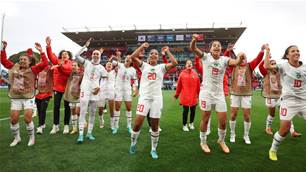
Morocco blazing a trail for Arab women's football participation
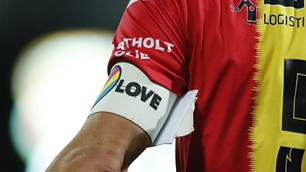
FIFA blasted for OneLove armband threat
